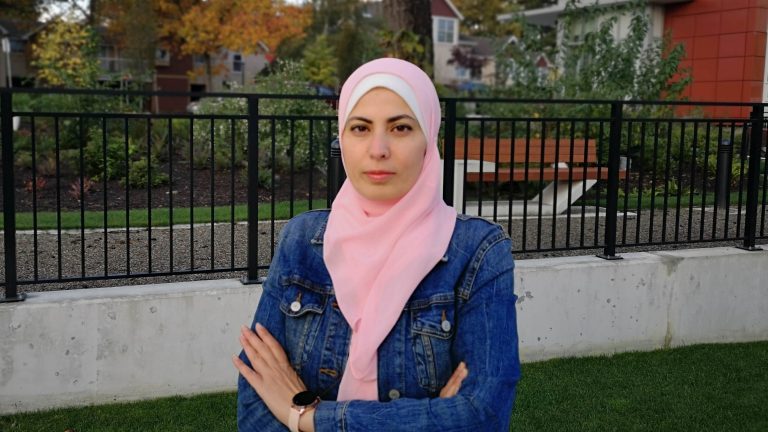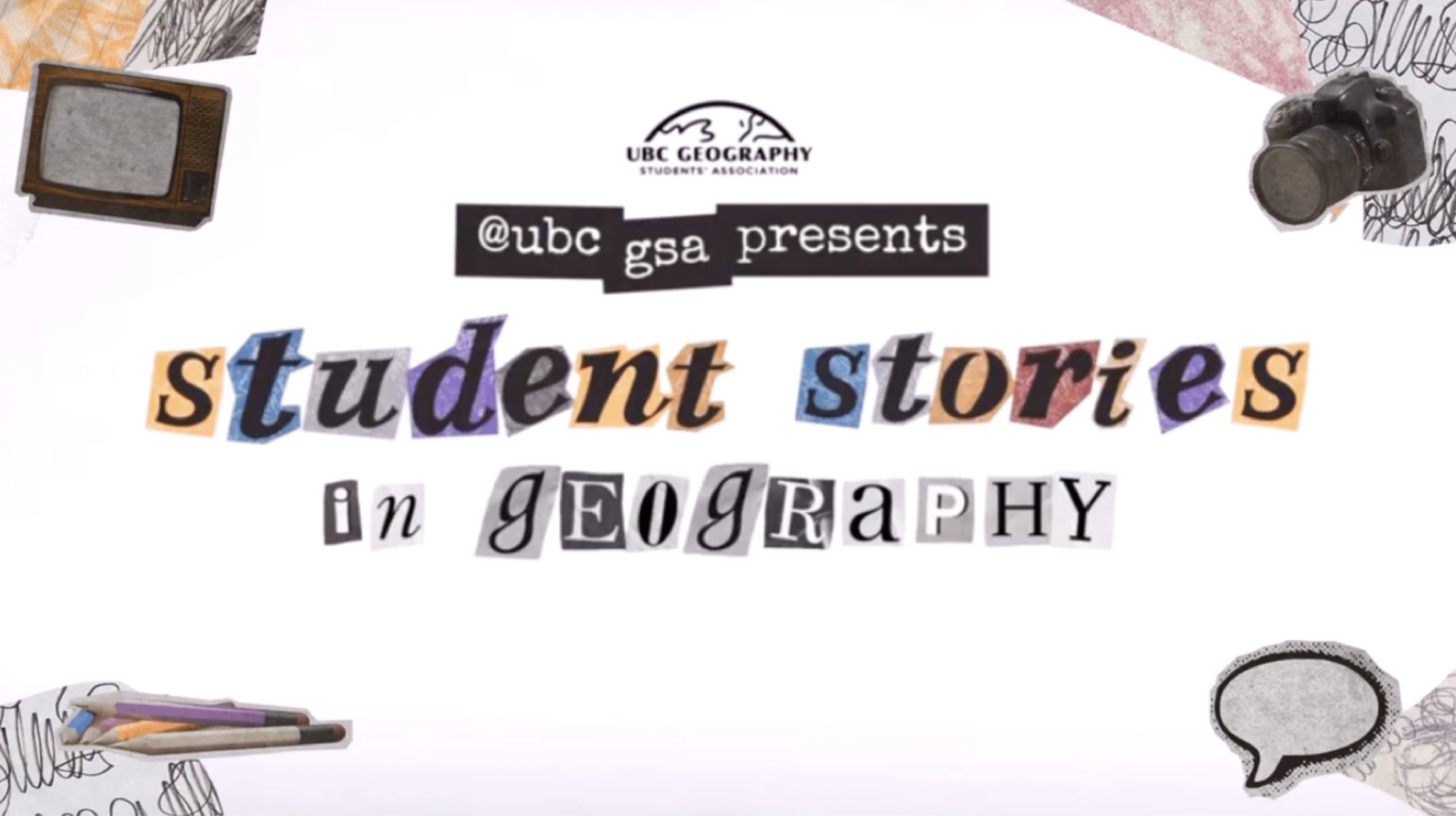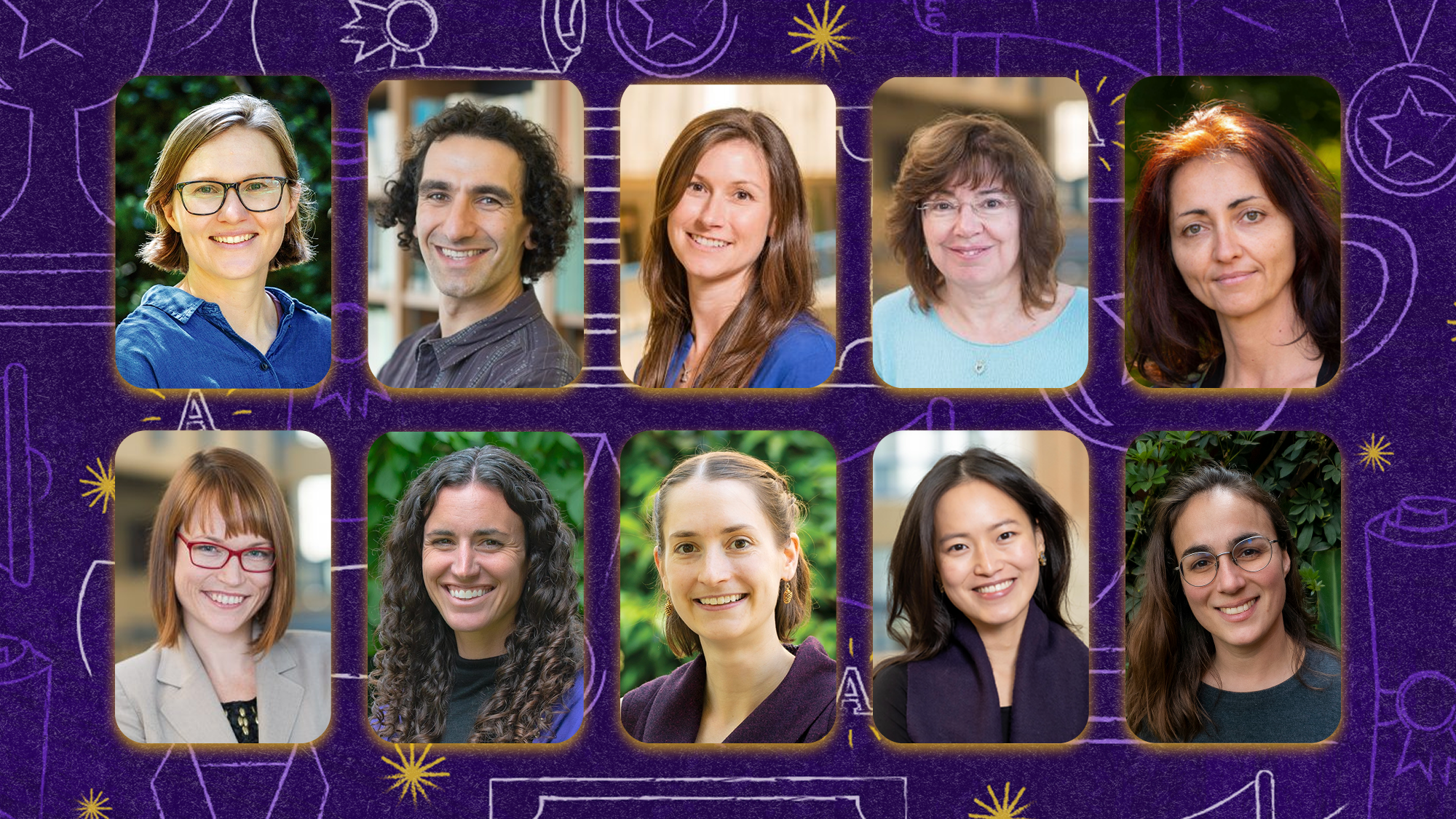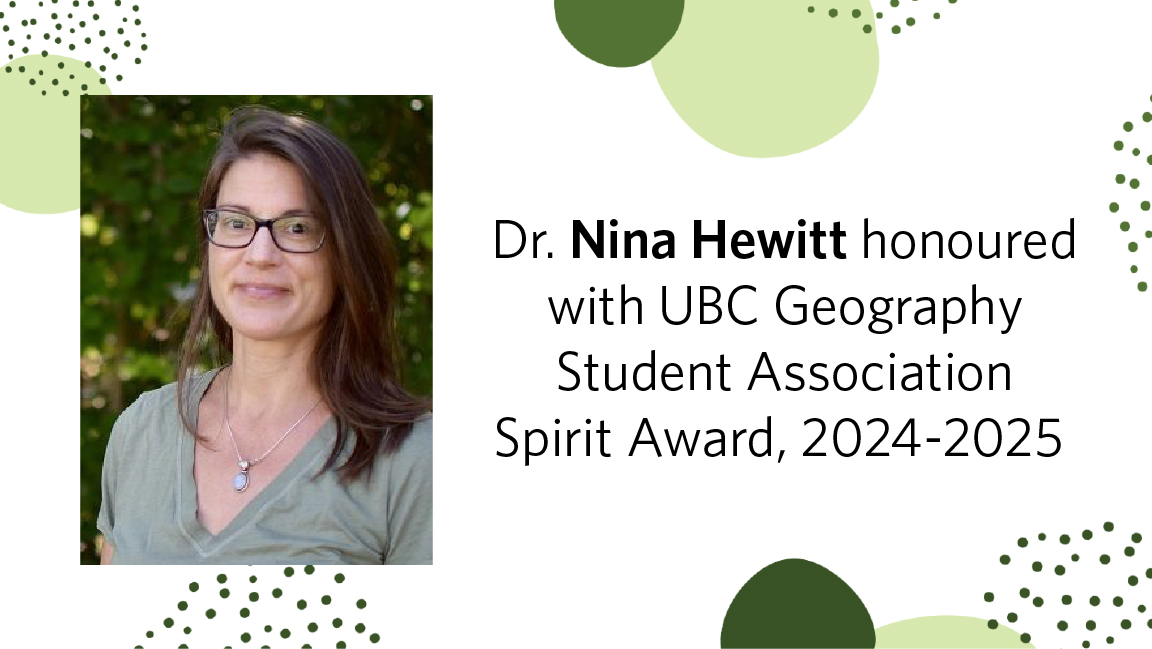

We are pleased to announce that PhD candidate Nisreen Alghorani has received the inaugural Sandy Lapsky Award in Geography.
The $4,000 award recognizes the additional challenges faced by international students, and has been made possible thanks to a generous donation by the department’s administrator Sandy Lapsky.
Already a GIS specialist before coming to UBC, Nisreen works on investigating the impact of land use change on watersheds. This is increasingly vital for informing future water management strategies, as municipalities contend with the effects of climate change.
What made you choose UBC Geography for your PhD program?
As I was interested in studying hydrology and sediment dynamics, I chose UBC Geography because it offers a unique program that combines geography and physics. Also, to work with my supervisor Marwan Hassan and to live in beautiful British Columbia.
Can you describe your research project?
My research project focuses on investigating hydrological and sediment dynamics of watersheds that have undergone large-scale land use changes. Specifically, I study spatiotemporal patterns of flows and sediment loads and evaluate the role of geomorphological settings of channels that, in addition to land use, can accentuate these patterns. At the reach scale, I work on modelling streambed disturbance and sediment transport in forested channels.
When and how did you first become interested in GIS?
Having graduated in 2000 as a telecommunication engineer, I have solid knowledge in digital signal processing and GPS applications. I found it very interesting how useful GPS data can be when combined with other geographic data. Since then, I have felt I should pursue an education in GIS, and instead of working as a telecommunication engineer, I have worked for ESRI-Jordan, a pioneering company in GIS.
The versatility of spatial analysis offered by GIS has inspired me to study Geoinformatics and Photogrammetry in Germany, where I gained a thorough understanding of spatial technologies such as remote sensing, GIS, and photogrammetry.
Before coming to UBC, you worked in a senior position at the Royal Jordanian Geographic Centre. What was that experience like?
Planning a city, developing strategies, or conducting research is impossible without spatial data. During my career, working across public, academic, and private sectors gave me the opportunity to understand the high demand for developing a national spatial data infrastructure (NSDI). As a head of the geoportal department at RJGC and a member of the technical committee of NSDI, I was responsible for creating the central geospatial database of Jordan and ensuring that this spatial information is accessible to individuals and entities.
Further, due to the rapid increase in population and rising concerns about water security in Jordan, I became interested in watershed and river management. Effective watershed management, however, requires understanding of underlying physical processes, and I found UBC’s physical geography program to be the right place to learn that.
What would you like to do after your PhD?
The gap between economic and environmental policy makers is always wide. Although I may not be able to bridge this gap completely, with the knowledge I have gained at UBC, the convergence between them is possible. I will therefore seek to work with government agencies where I can have a tangible impact on watershed management strategies in the future.
What were some of the biggest challenges for you as an international student at UBC?
Having four children and being a graduate student is quite challenging. Adapting quickly to the new lifestyle, culture, and school system is also necessary.
With these challenges, I reached the point where I felt I couldn’t continue my PhD study, but since I believe that success is about persistence and patience, I was able to push forward.
Where have you found support, as an international student?
A big support to me was my supervisor, Marwan Hassan. His belief in my ability to succeed always encouraged me. He was always available for advice and guidance whenever I needed it.
Furthermore, I found the staff of the geography department to be very supportive and helpful, particularly Sandy Lapsky.
What does receiving this award mean to you?
This award means a lot to me. It means I have succeeded, and my research is valuable.


